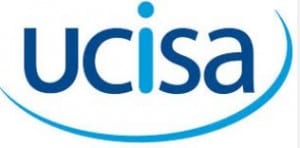The UCISA Digital Capabilities survey summary recommendations include Creation and embedding of holistic, relevant and creative digital curricula and training opportunities for students and staff.’ Highlighting the need for staff development opportunities is long overdue.
Less than a decade ago UoL hosted diagnostic tests on the VLE and ICT ran workshops on a range of different software packages. Today, anyone wanting support is directed to online help from Microsoft or WordPress or even the more personalised Blackboard support videos.
For a while the myth of the digital natives prevailed. When Getting Started went institution-wide 5 years ago, it was suggested guidance for using Blackboard was unnecessary as new students could find their way around any online system. Yet recent Getting Started evaluations ask for help with Blackboard – because it’s not Facebook which would probably be the VLE of choice – after all it supports file sharing and chat – what more could anyone want? Yet when it comes to digital confidence, even the relatively unsophisticated Facebook can pose a challenge.
Lincoln EDEU have developed Blackboard Site Standards for September 2015. These will go some way to renewing essential conversations around engagement with VLE. The standards include online submission, having meaningful navigation structures and filenames as well as accessibility – ‘all content (text, images and multimedia) to be in an appropriate format and follow accessibility guidelines.’ Yep – that one was mine! 🙂
Support material will be developed alongside a series of workshops. EDEU maintains the value of face-to-face contact. Our Digital Educational Developers run Drop-in Sessions twice a week; they can build workshops around programme team or school requirements or answer any of your digital questions. Just get in touch via edeu@Lincoln.ac.uk or http://edeu.lincoln.ac.uk/about-edeu/edeu-staff/
Digital confidence is not only technical support. It’s a behaviour shift which is cognitive as much as kinaesthetic and spatial. VLE have more potential than simply giant electronic notice boards or file repositories – they offer opportunities for connection and collaboration which are rarely utilised. Digital adoption takes time, which is always in short supply, but also demands answers to pedagogical questions around the value of technology for teaching and learning.
For too long a DIY approach has caused confusion about the purpose of VLE. The new required standards offer ideal opportunities to rethink the use of technology for teaching and learning. UCISA are right. We need to create ‘holistic, relevant and creative digital curricula and training opportunities’ and EDEU are already looking to start discussions with staff who teach and support learning about how best to make these happen.
